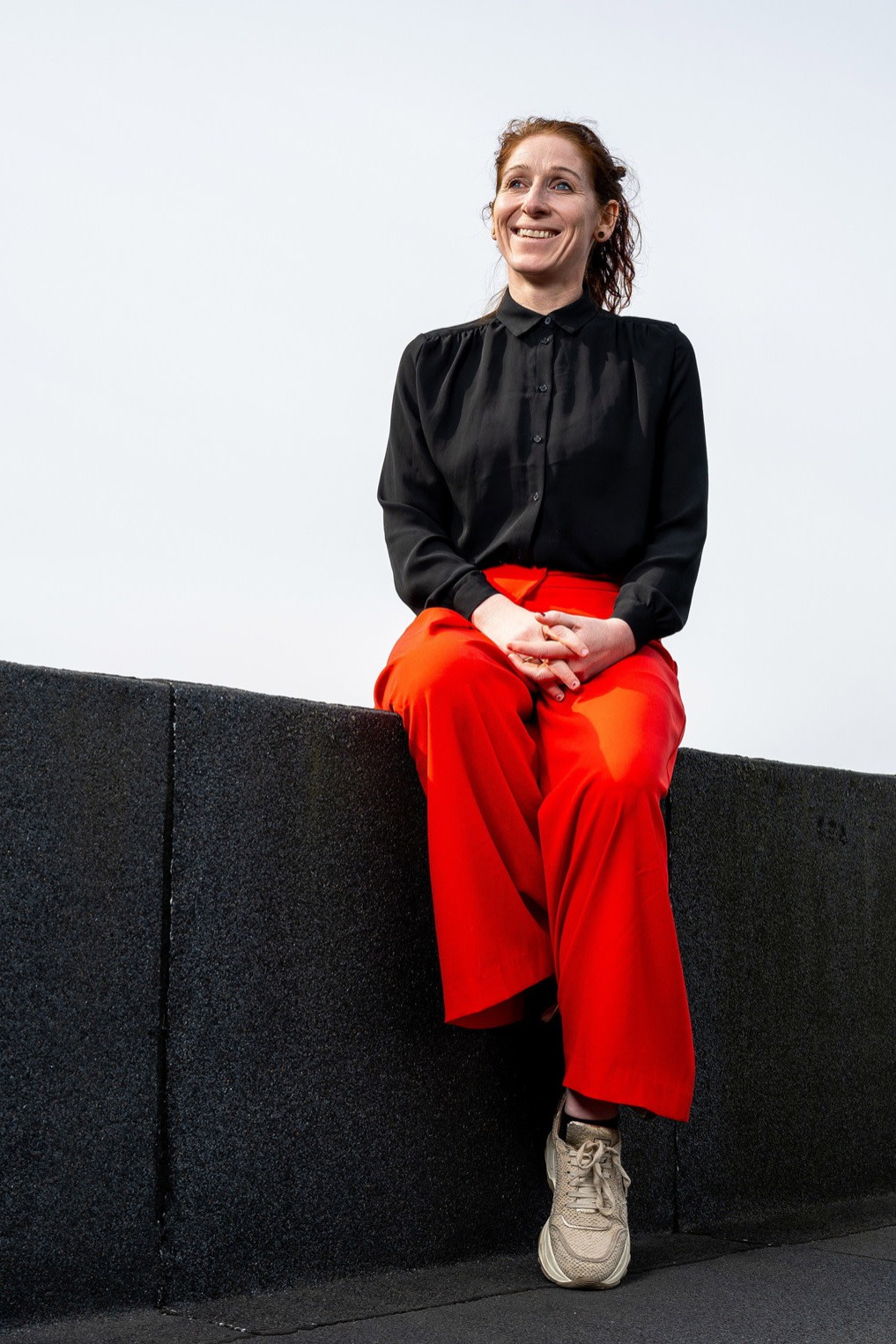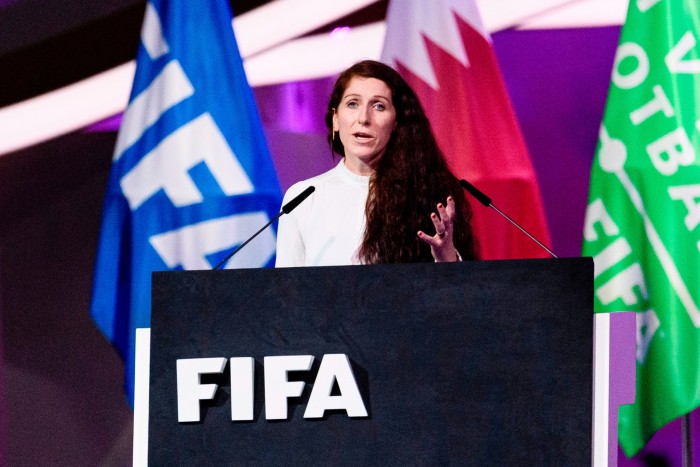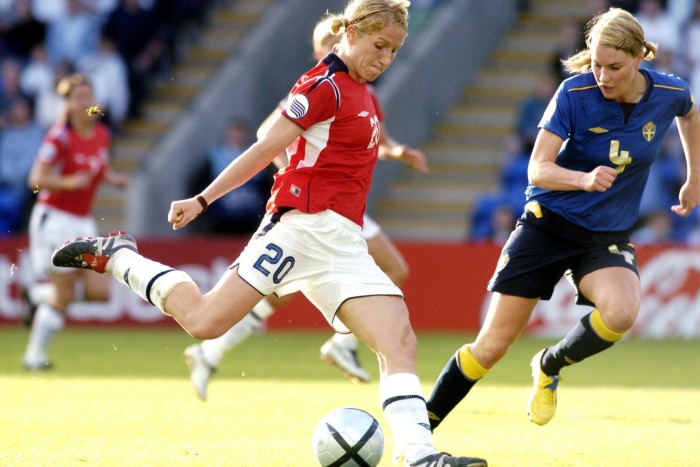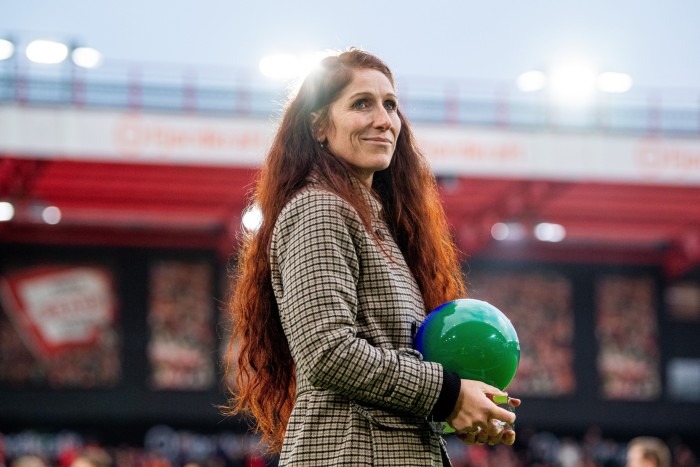Lise Klaveness fights the lonely fight to change world football

Roula Khalaf, Editor of the FT, selects her favourite stories in this weekly newsletter.
In March last year, Lise Klaveness, who had just been elected as the first female president in the 120-year history of Norway’s football federation, flew to the congress of international football’s ruling body, Fifa, in Qatar. Legally, she risked years in prison there for being married to a woman. Her five-minute speech outraged the almost entirely male congress.
She told them that 2022’s World Cup staged in Qatar, and the one hosted by Russia in 2018, were “awarded by Fifa in unacceptable ways”. Human rights, equality and democracy, “the core interests of football”, she added, “were not in the starting 11”. One Fifa official responded that it was not “the right forum or the right moment” to say such things.
“I think it’s about how we run football politics,” Klaveness says of the hostility she encountered. “The system feeds everyone so well that it’s media who is supposed to do the criticism, and the football body would react if the criticism is too heavy. But if it’s not, then back to business. We don’t have leaders that lead, or debates, or value discussions. And, when you don’t have that, money will always be a very strong value. Money is important, but it cannot be the only value.”
Undeterred, Klaveness, 42, continues her often lonely fight to change football. As the female president of a national federation, she rates as a global role model alongside Cindy Parlow Cone, her counterpart in the US federation.

Klaveness grew up in Bergen in the west of Norway. Even then, for a Norwegian girl, she notes, it was very normal to play football. “I’m probably a product of where I grew up and social democracy. We had a female prime minister, Gro Harlem Brundtland, my whole childhood.
“My closest training partner was my dad. He saw that I had dreams, wanted to train six, seven hours a day.” He converted the family garage into her personal training studio.
“He didn’t care if I was a son or a daughter. That says something about the level of equality. A good childhood lasts forever. He created a fake expectation in me that this was also [the nature of] the world. So it was a bit of a shock to me when I was older that the football business was so unfair.”
Klaveness played 73 times for Norway as a creative playmaker and became a business lawyer with no desire to work in “masculine-coded” football. But, eventually, she decided to confront that male domination: “I’ve always felt very stubborn: this is my game.”
As Norwegian TV’s first female football pundit — and “even though I spent my whole life in football” — she found some viewers questioned her knowledge of the game.
“People would comment on my looks, and that I was ugly. I guess I found motivation in it, that I can say, ‘I don’t care’ — and I did care, by the way. I think it’s interesting to feel vulnerable, and able to feel stupid and ugly. I wanted to change it and I got pissed [off]. For me, it’s always a good thing to go from scared and sad to become pissed. I turn it over to a war face.”
She became the first female technical director of Norway’s male and female national teams, then federation president. Klaveness likens herself to female leaders that “have to be asked several times to say yes — which I have, for all these positions”.
She’s happy she did: “I’ve always had very good colleagues. I like male colleagues. I like female colleagues. I’ve loved every job I’ve had.”
With three sons of her own, she aims to make Norwegian football’s workplaces friendlier to mothers. “You give birth to kids, they grow in your body and then there’s a separation, and it’s not a small thing.”
She wants more female coaches. “But we are very far from it. We almost have no one.”


Unusually for a football official, she rattles off her failures. Norway’s men’s team — “which will always be a core of what I do” — has almost certainly missed qualification for the Euro 2024 championship in Germany. “Another thing bothering me is sustainability. I don’t think I’ve been able to use my platform in an efficient way. We talk about it, but we’re not part of the positive spiral at all. And I cannot say I am, either.”
In international football, she feels she’s engaged in “a values fight”. “I think western values — a lot of them are worth changing, and we should listen, and we should not think we are any better than anyone else.” The fight for equality is one. “We’re far from equality,” she says of the western world. “Freedom of speech is something else I think is worth fighting for, and also the freedom to love who you want to love. These three things I think should not be bought for money.”
To change football, she will need more friends. She wonders whether she should have given her natural allies warning of the Qatar speech, knowing that they might be uneasy about its bluntness.
She didn’t anticipate the reaction it caused: “I was new and nobody told me, but now I think I would call my Swedish, Danish colleagues,” she says, “to discuss with them that I’m about to do something”.
This spring, she failed to win election to the 20-member executive committee of Uefa, Europe’s football authority. She had run for an open seat, not the single one reserved for women. She plans to run again.
Male officials often tell her they understand her views, because they “have daughters”, and advise her to be “patient”.
Klaveness doesn’t buy this. She believes that with the world’s game “so stuck” in its ways, and with the financial gap between men and women’s football growing, “then the patience argument is wrong”.

Comments